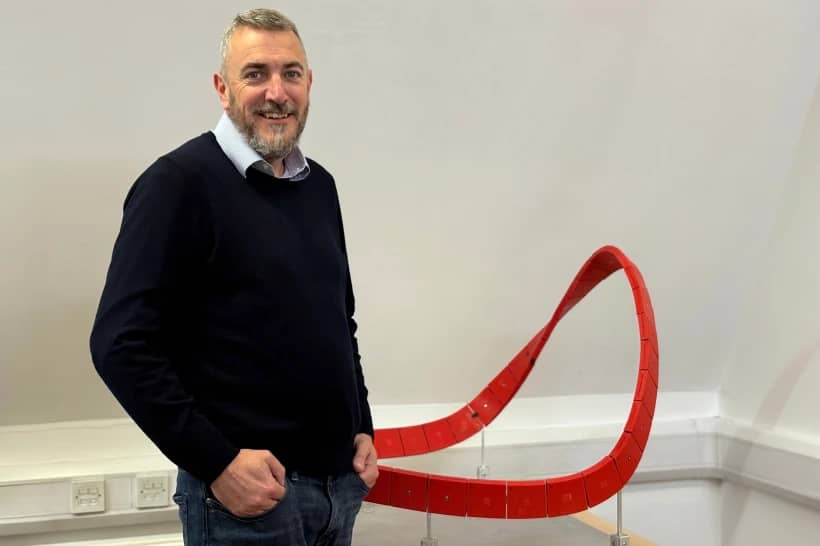LEICESTER, United Kingdom – Catholics in England are working to combat modern slavery as growing numbers of people risk being forced into labor.
The charity Unseen, which runs the Modern Slavery and Exploitation Helpline in the UK, issued a statement saying they saw a “record number of calls in 2023, marking an increase for the fourth consecutive year.”
The British government says human trafficking, slavery, servitude and forced labor are all forms of exploitation which fall under the umbrella term of modern slavery.
Caritas Salford and the Diocese of Salford have launched a new initiative to further help stop modern slavery in all its forms in communities in Greater Manchester and the county of Lancashire.
Over 40 people attended the pilot session of “Modern Slavery: Breaking the Chains” in the diocese this week.
“This new training, which we are hoping can be rolled out more widely to other communities and organizations, is a vital next step in a range of activities we’ve been carrying out in recent years as we attempt to combat modern slavery in our diocese,” said Patrick O’Dowd, director of Caritas Salford.
“We know that this is a huge global problem happening right now and sadly the true number of people experiencing the trauma of modern slavery is unknown, but the Global Slavery Index estimates 40 million people worldwide and 136,000 in the UK,” he said.
“It’s a problem that isn’t just happening miles away from our own homes, but right here in our local communities and parishes and that’s why it’s so important that we are more aware and able to recognize the signs of modern slavery and human trafficking. We need to know what steps we can take to support those who are experiencing it,” O’Dowd added.
In a press release, Unseen said that the increase in calls to its helpline “coincides with a 30 percent increase in potential victims identified within the UK adult social care sector.”
Pauline Morgan of the Diocese of Salford said the diocese and associated charities and organizations have already taken significant steps to highlight slavery and to cut the risk of exposure in the church’s supply chains, how it invests and in its local communities.
“This training is the next important stage in this work, and we hope it will further empower people to take practical action in tackling modern slavery across our diocese and beyond. It’s vital we take real, tangible action and all commit to making change that saves lives,” she said.
Bishop John Arnold of Salford also attended the “Modern Slavery: Breaking the Chains” session.
“Our churches and schools are often the first place that people experiencing the crime of slavery turn to for support,” he said.
“In the Diocese of Salford we have made a firm commitment to tackling modern slavery in all its forms and to support people affected at a time they need it most, a journey we have been committed to for some years. This is a subject Pope Francis called ‘a crime against humanity’ and we all know that we simply cannot sit back and do nothing while so many people are suffering in such terrible ways,” Arnold said.
“Our parishes and churches should be a sanctuary for those who need it and working alongside Caritas Salford, and our partners at the Medaille Trust, Santa Marta Group and Greater Manchester Police, we want to protect the human dignity of every person. Everyone deserves to feel safe and secure and it’s all of our duties to be aware of how we can help others to do that. In fact, we must all not just be aware, but also speak out and take action to help,” the bishop added.
The Medaille Trust was started by the late Sister Ann Teresa in 2006, and provides a national network of safe houses provides personalized support, empowering clients on their path to a life that is free from slavery and exploitation.
The Santa Marta Group is alliance of police chiefs and bishops from around the world working together with civil society to eradicate human trafficking and modern-day slavery. It was founded at the Santa Marta House at the Vatican, where Pope Francis resides.
Miriam Cakebread, policy and network officer at the Santa Marta Group, said she was happy to be at the “Breaking the Chains” event.
“There was a real sense that the Church and Caritas care deeply about, and are ready to mobilize against, the scourge of modern slavery and human trafficking in our communities. Thank you for the opportunity to be involved – we feel energized and inspired by the group’s engagement, and look forward to developing our links with this network in the future,” she said.
The Diocese of Salford and Caritas Salford have been collaborating with police, statutory agencies and other charities to help identify and support survivors and establish partnerships to enhance anti-slavery efforts.
Follow Charles Collins on X: @CharlesinRome
















